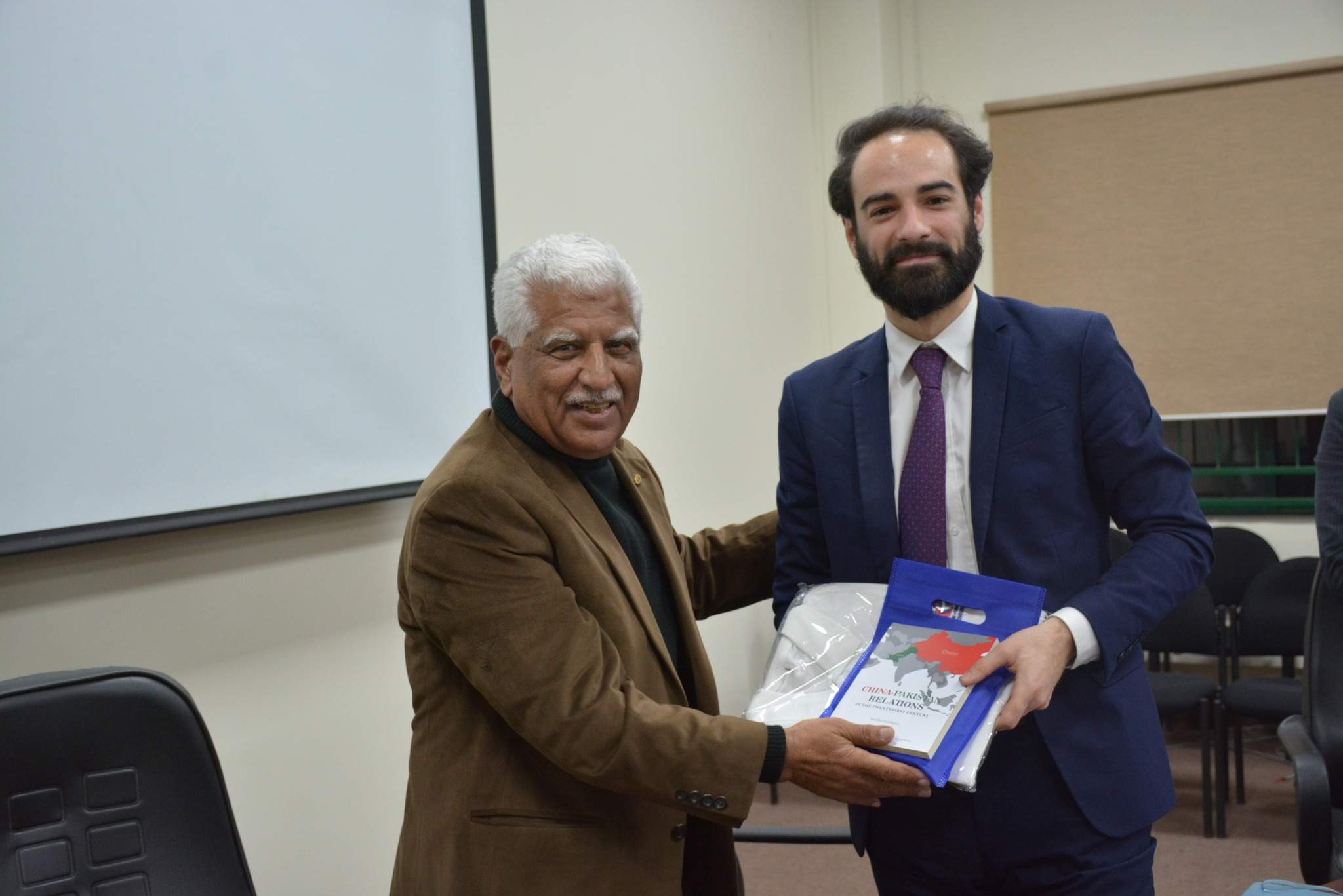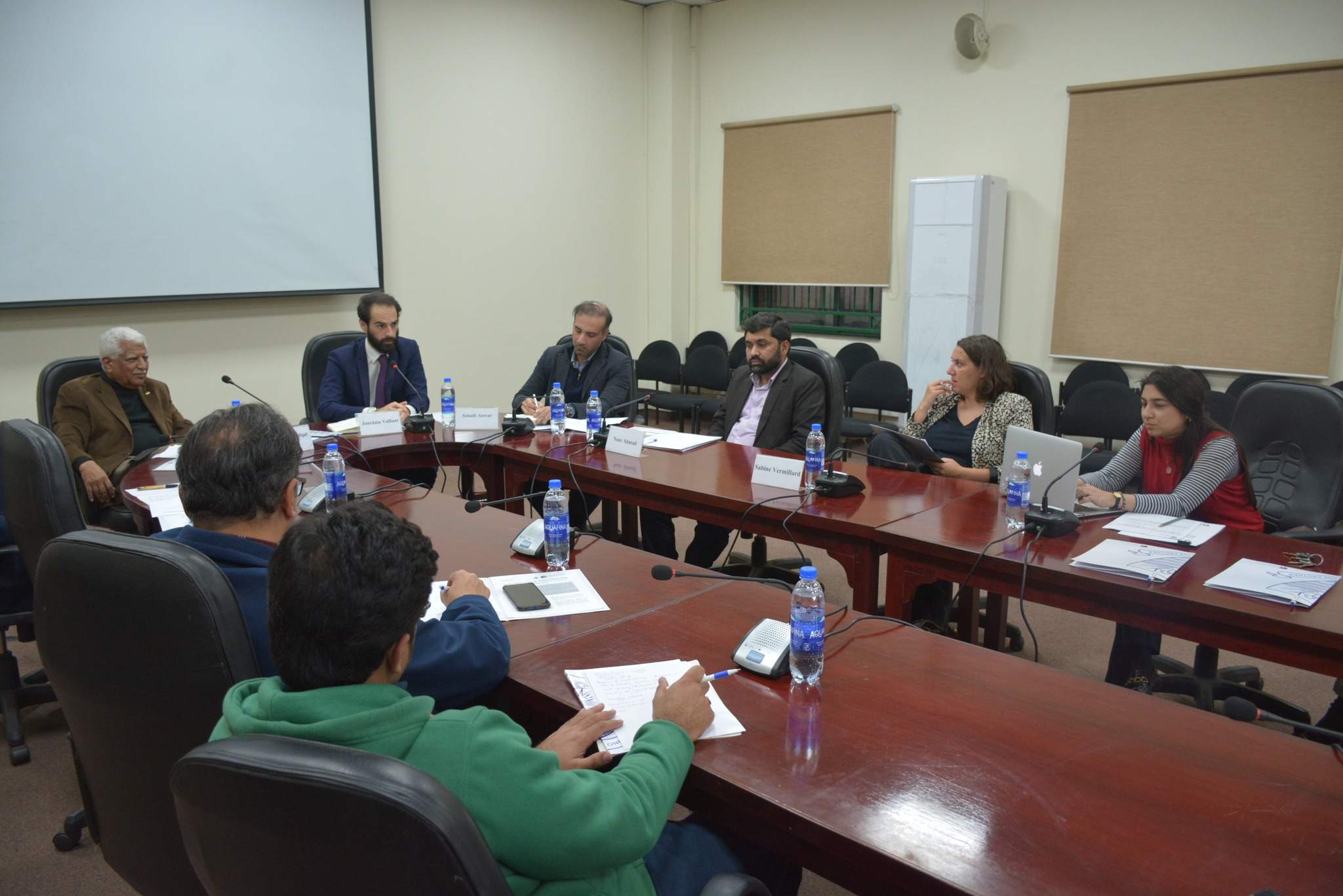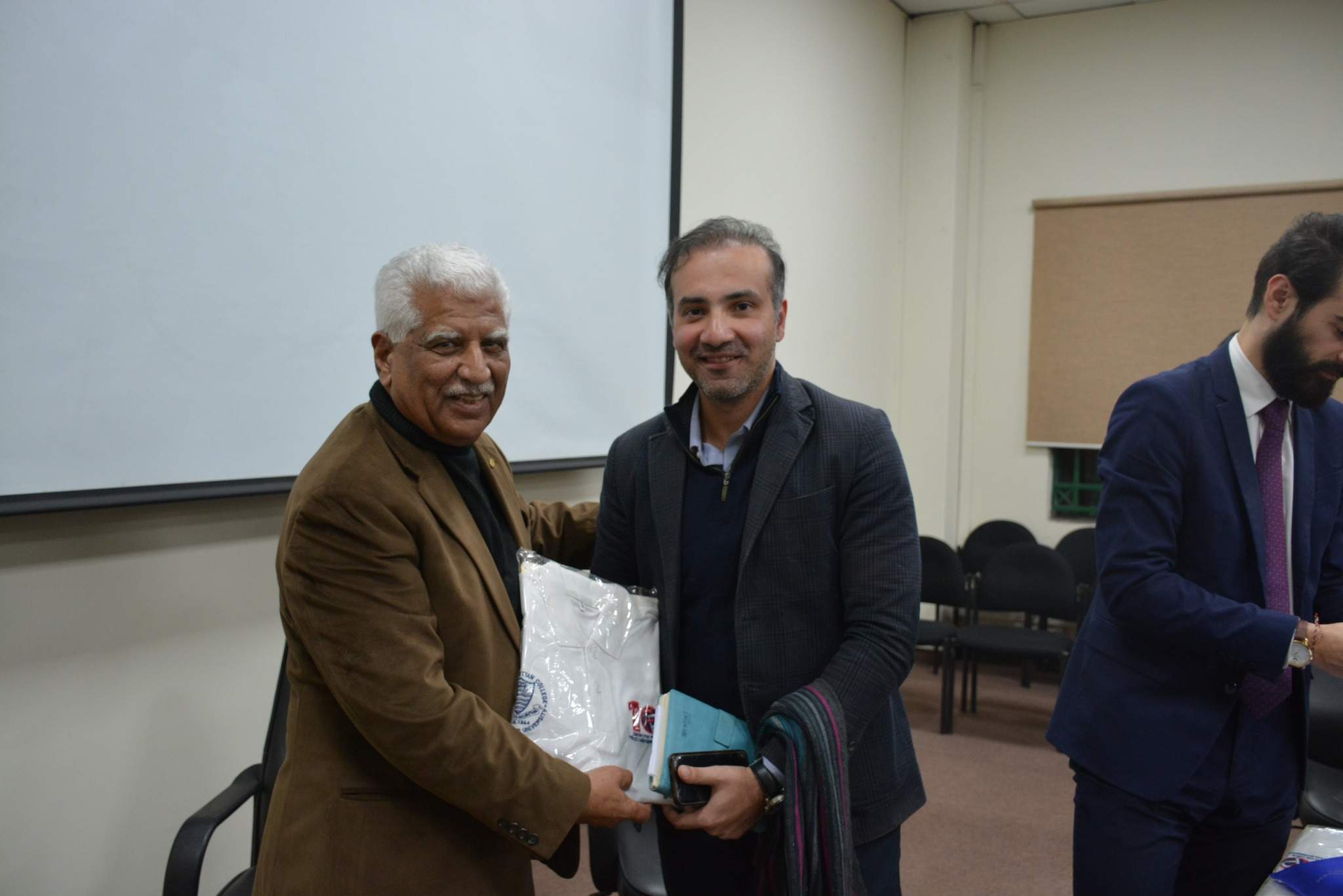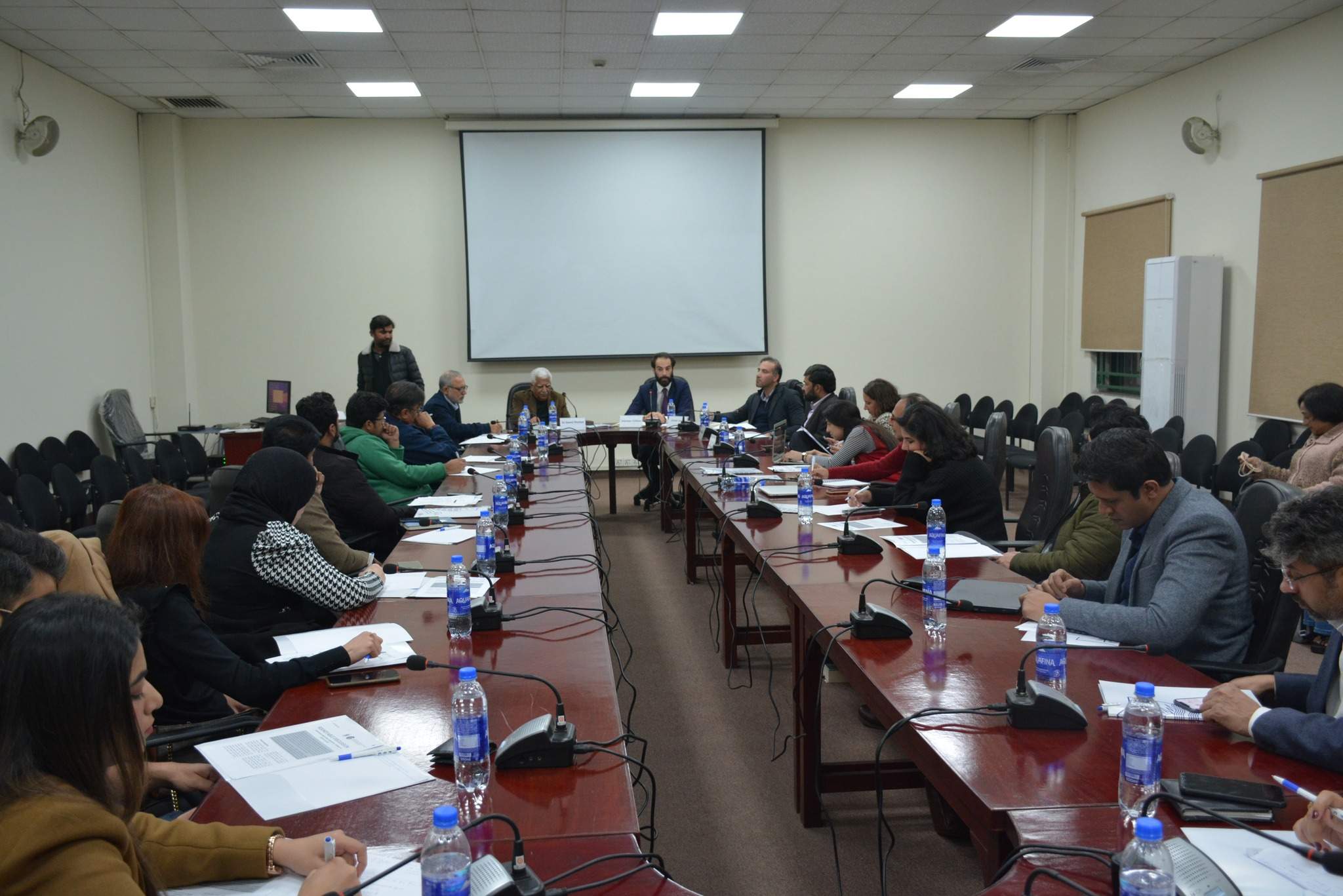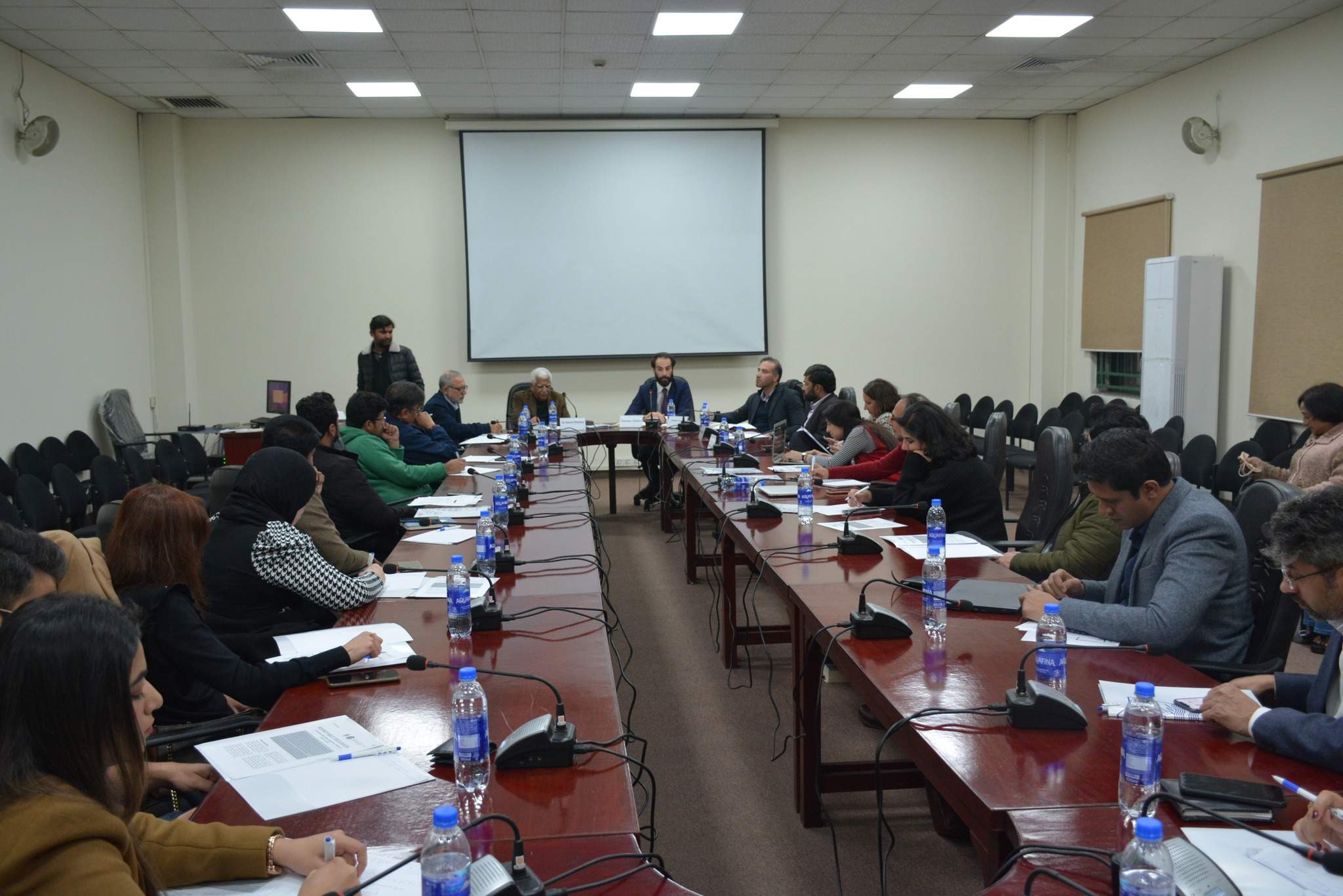
International Climate Change Negotiations: Challenges to Justice and Security
Roundtable Discussion
Past Event
Jan 25, 2023 - 5:00 pm |
Jan 25, 2023 - 7:00 pm
Jourdain Vaillant, Sohaib Anwar, Noor Ahmed
CPPG FCCU
Upcoming Event
On January 25th, the Centre for Public Policy and Governance (CPPG), Forman Christian College (A Chartered University) in collaboration with the Embassy of France organized a seminar on “International Climate Change Negotiations: Challenges to Justice and Security”. The seminar brought together renowned scholars, environmentalists, and climate negotiators to address the current challenges to justice and security at local and international levels. Dr. Saeed Shafqat, Professor and Founding Director, CPPG, introduced the guest speakers and gave his opening remarks. It is worthy to mention that the CPPG has been involved with the ‘Paris agreement’ process from 2015 onwards.
Mr. Jourdain Vaillant, was the Distinguished Guest Speaker. A career diplomat and climate negotiator at the French Ministry of Foreign Affairs in the Climate Division. Previously, he was a research fellow at the French Institute for High National Defense Studies (IHEDN), and a member of the cabinet office of the President of the French Constitutional Council. He has also contributed in Drafting of the European “Climate and Finance Pact” (2019) and “Global Pact for the Environment” (2017) projects. Prior to this, he was an associate expert on ecological transitions to the French think tank “Fondation Jean Jaurès”, and a member of “Le Lierre”, a network of civil servants in charge of greening the French administration.
The seminar included two other guest speakers: Mr. Sohaib Anwar, an environmental engineer at Hagler Bailly Pakistan and Mr. Noor Ahmed, Deputy Director, Environment Protection Agency (Punjab). Dr. Saeed Shafqat invited the speakers to share their expertise, analyses, and recommendations by raising a few key issues in his opening remarks: first,the nature and importance of climate change negotiations in the Global South, with reference to the issues of justice and security; second, from an economic perspective, how could a developing country like Pakistan—most vulnerable to climate change—scale up the finances needed to combat the climate crisis? Equally important to the discussion, was to understand the role of governments at three levels: federal, provincial, and local. In Pakistan, are there any serious efforts made to centralize the National Climate Policy and develop strategies to implement it at the federal and provincial level?
Mr. Jourdain opened his remarks by explaining that the ongoing climate change debates denote the fact that the public understanding of climate issues has evolved in the last few years; and the international framework on the fight against climate change has become more integrated. The United Nations Framework Convention (UNFCCC), an international framework on climate change, was adopted in 1992. As defined by UNFCCC, climate change is human induced. To tackle climate change and its negative impacts, world leaders at the UN Climate Change Conference in Paris reached a breakthrough on 12 December 2015: the historic Paris Agreement. The Paris agreement is a landmark in the multilateral climate change process. The Paris agreement set forth three main agendas: (a) mitigation – keeping the increase in global average temperature to well below 2°C, and preferably to 1.5 degrees Celsius, compared to pre-industrial levels; (b) adaptation. The global comprehension of what adaptation means is still under process. Some parties and countries, some regions and participants believe that it is more of a quantitative or financial issue. The third goal was to provide financing to developing countries to mitigate climate change. At COP15 in 2019, the developed countries promised to channel US$100 billion a year to less wealthy nations by 2020, to support climate action in developing countries. Needless to say, the promise was broken. Having said that and considering the financial gap, our reliance today is on global frameworks to make the implementation of climate agendas as fast as possible.
He further added that it is a well-established historical fact that the industrial countries of 19th century Europe have contributed most to climate change. However, it is worthy to note that efforts are underway to mitigate the greenhouse emissions, to reduce it as fast as possible to prevent global warming, and to achieve the 1.5 °C target. As far as the issue of greenhouse gas is concerned, it is a scientific issue that has particular consequences; thus, it is non-negotiable. Further, to raise awareness on climate issues, it is important to ensure the engagement of the local communities including women and students. Expressing his personal opinion about the functioning of international law, he said that it is unlikely that international law will provide results on every issue. Rather, it is the ‘national will’ that is crucial when implementing domestic and international provisions.
Sharing Punjab government’s perspective on climate change, Mr. Noor Ahmed, drew the audience’s attention to the initiatives taken by the Environment Protection Department, Punjab (EPD). The EPD, he pointed out, is working on provincial climate change policy in the broad framework of National Climate Policy. He added, the EPD is working in close liaison with the federal government to finalize a national adaptation plan towards building a resilient Pakistan. What’s more, the EPD is on board with irrigation, agriculture, and energy sectors; and working with different academic institutions to spread awareness among the masses.
Mr. Sohaib Anwar brought to attention the issue of ‘institutional incohesion’ in Pakistan. He pointed out that there is a lack of cohesion between institutions at local and provincial level, as well as lack of cohesion between institutions at national level. It is instructive to note how things have evolved in Pakistan, particularly in the context of policy and legislation. He observed, one of the important events in the political history of Pakistan is the Eighteenth Amendment, which has devolved significant powers from the federal to provincial and declared local government as the third tier of the constitution. But sadly, those powers and the capabilities that were required by the institutions to act upon those powers were never fully invested into. This has caused certain limitations or gaps in the context of capacity building. It goes without saying that Pakistan has limited operative capacities and financial resources. Therefore, one of the challenges facing Pakistan today is how to build the capacity of the state and how to enable the markets within the domain to absorb the technology.
Mr. Sohaib was emphatic in pointing out the inadequacies of Pakistan’s institutions: limited understanding of climate as a science; limited capacity of understanding the data and information assimilation, and more importantly to translate data and information into an effective decision-making process.
At the end of the session, the participants posed a number of challenging questions. Active participation from the attendees, especially students and faculty members associated with CPPG made the seminar a comprehensive forum for exchanging ideas on how to address environmental challenges, including climate change. For instance, there was discussion about how to overcome the financial gap with no mitigation strategy on ground. Mr. Jourdain responded that although the estimated climate finance needed globally is around $1 trillion a year, the current climate finance flows that are being delivered internationally are around $652 million. There were some important questions about the green economy, intellectual property rights, advanced technology, monetary funds, and NGOs.


